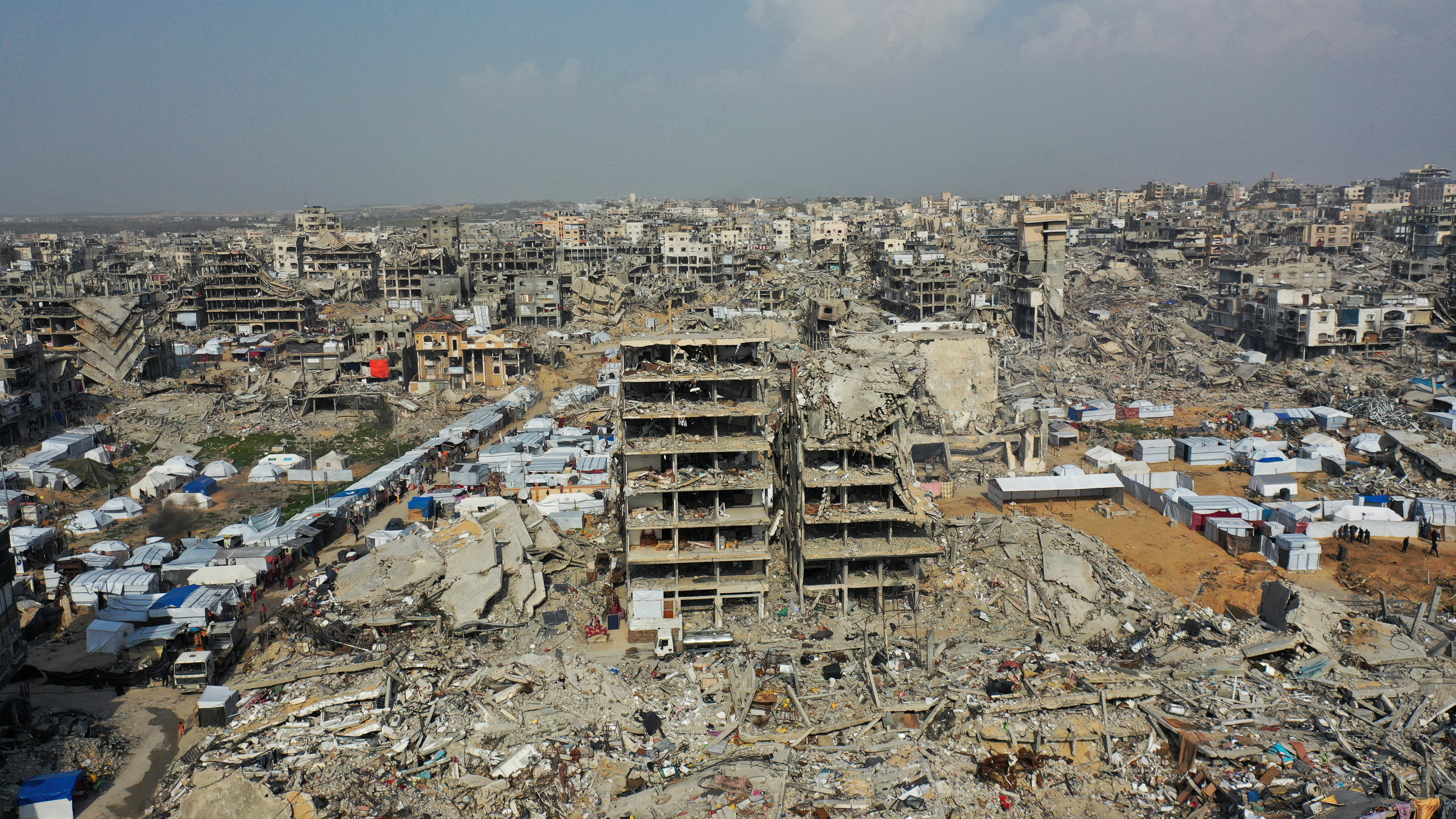Have we come to a point where values like democracy, charity, humanitarianism, all cherished by the West, have come to a natural end?
Since his election as president, Donald Trump has made sweeping changes to US national policy, yet the most underreported and equally important issue has been the cuts to humanitarian aid by the US and other super-rich nations.
Earlier last week, the UN Secretary-General Antonio Guterres said “Human rights are the oxygen of humanity. But one by one, human rights are being suffocated – by autocrats, crushing opposition because they feared what a truly empowered people would do; by a patriarchy that kept girls out of school, and women at arm’s length from basic rights; by wars and violence that stripped populations of their right to food, water and education; and by warmongers who thumbed their nose at international law.”
Protocols of neutrality and diplomacy do not permit the UN to name and shame the guilty, but this must surely include the United States. The USA’s continuing support for Israel through a gargantuan $22.76 billion budget for weaponry and bombs since October 2023 has caused the deaths of 62,000 people and destroyed 92 per cent of homes in Gaza. Israel’s deprivation of food supplies to Palestinians as a weapon of war still continues today under the USA’s watch. In Gaza and the West Bank, killings are an everyday occurrence despite the current cease fire.
Right now, global provisioning for upholding basic human rights is facing a catastrophic blow. Money which had been going to the poorest of the poor in many countries, people who are starving, going blind, catching fatal diseases and suffering the consequences of war are to be virtually abandoned by the US through a 90 per cent cut in its humanitarian budget. This amounts to the wrenching of $54 billion from the needy. Other governments, notably some of the wealthiest Western countries are regrettably following suit with UK cuts of $6bn, Germany $5bn, France $3.5bn, Belgium $0.5bn, Finland $0.3bn and Switzerland $0.3bn.
It’s ironic that the same Western nations cutting humanitarian aid once built their wealth on the exploitation of poorer countries through colonisation and slavery.
The UN High Commissioner for Human Rights Volker Türk said “sweeping cuts to domestic social safety nets, climate finance and foreign aid signal a massive setback for human rights protection, for conflict prevention, and for global stability.” The UN also reported that these cuts will have greater impact on the lives of women and girls, giving rise, for example, to higher rates of unsafe abortions, infant mortality and maternal deaths.
We will remember that during his first term of office, Trump referred to some of the poorest territories in the world as “shithole countries”. The Trump administration’s immigration policies led to thousands of children being separated from their parents at the US-Mexico border. Regarding Gaza, Trump suggested it should become the “Riviera of the Middle East”, disregarding the suffering of 2.3 million people and disrespecting the thousands still buried under the rubble. Trump’s response to the brutal assassination of journalist Jamal Khashoggi was completely heartless and dismissive.
These actions, which show a blatant disregard for human dignity, align with what many have described as sociopathic thinking. Accordingly, it would be wishful thinking to expect Trump to act with compassion, and continue with humanitarian funding.
It is, though, very disappointing that the UK, with a history of philanthropy across the globe is copying the United States in making cuts to its humanitarian aid programme. That this is being done by the Labour party which is supposed to hold the moral high ground on social and ethical issues is disturbing. Necessary funding for the Ukrainian war effort could have been raised in many different ways, but cutting funds to poor people abroad is all too easy for the UK and other European countries because the destitute do not have a voice, or a vote.
Setting aside the humanitarian aspects of aid, it doesn’t take a genius to see that when governments cut foreign aid, they might save money in the short term, but the long-term consequences could be far more expensive. Investing in developing economies can create future trade partners and new markets for exports. Preventing crises like famine, conflict, or economic collapse reduces the risk of mass migration and extremism, which can directly impact richer nations. In addition, Western countries which cut aid risk losing influence to rivals like Russia and China, which are using aid and debt management to expand their geopolitical power.
It is not true that military support is required only in one direction – US providing it to Europe. The oceans do not seem to protect US from the Russian threat. There have been several instances in the past where the two countries came close to a nuclear war, the most notable being the Cuban Missile Crisis of 1962. If similar incidents arise in the future, the US may regret weakening unity and diminishing the North Atlantic alliance’s deterrent power and military strength, where an attack on one is treated as an attack on all.
Getting back to my principal point about humanitarianism, surely, taking money that supports life, and spending it on killing and death is unprincipled and immoral. Does that matter?
Have we come to a point where values like democracy, charity, humanitarianism, individual rights and freedoms, human rights and equality, all cherished by the West have come to a natural end?
Are we hurtling wildly towards the dystopia of the Hunger Games for real?
Fahri Zihni is former chair of Council of Turkish Cypriot Associations (UK), a former policy advisor at the UK’s Cabinet Office and a former president of the Society of IT Management, UK






Click here to change your cookie preferences